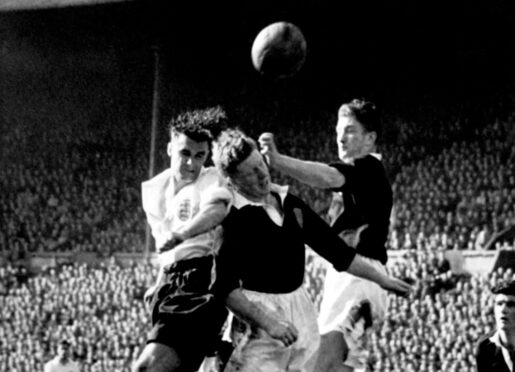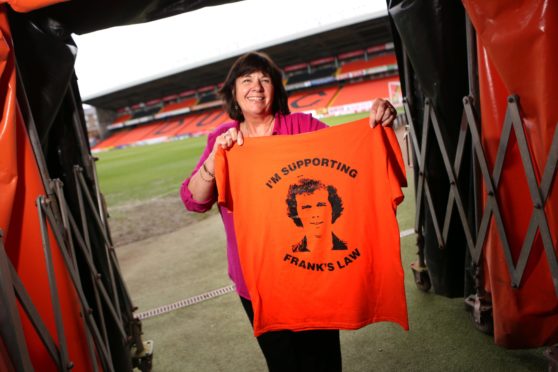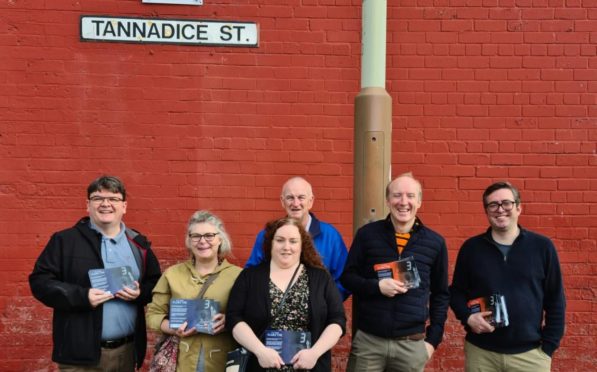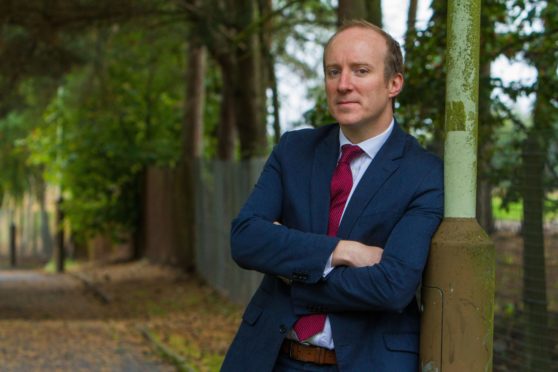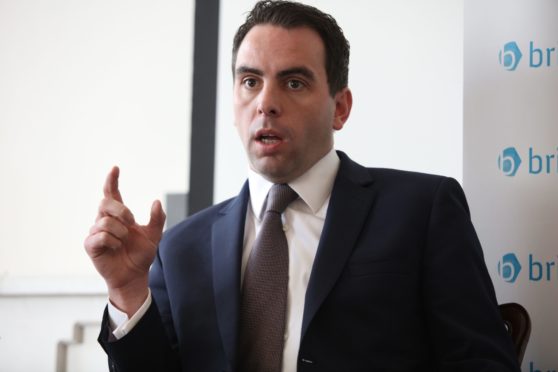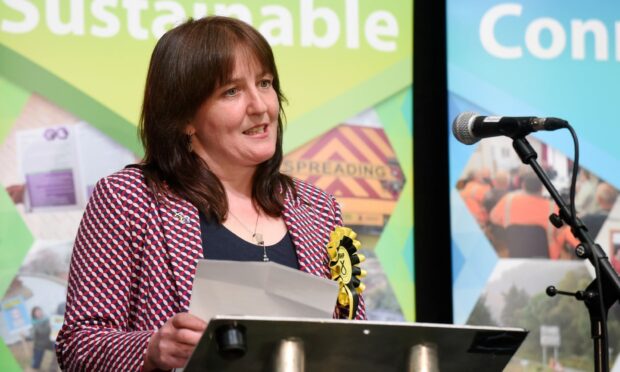The Scottish Government’s decision to say they could not brand head trauma acquired by professional footballers’ an “industrial injury” because of Westminster has been branded “bizarre”.
Members debated the impact of brain injury caused by heading footballs by former professionals for the first time on Tuesday evening, following a debate brought forward by Dundee-based Labour MSP Michael Marra.
Mr Marra called on the Scottish Government to classify neurological conditions suffered by ex-players as “industrial injuries”, as part of a growing campaign involving community champion Amanda Kopel and former Celtic player Chris Sutton.
Mrs Kopel, whose husband Frank played professionally for Dundee United, campaigned tirelessly for an extension to free care for under 65s after her beloved partner was diagnosed with early onset dementia.
The campaign, which became known as Frank’s Law and supported by this paper, was successful, with care extended to younger sufferers from 2019.
Her passionate advocacy was mentioned during the debate by Mr Marra.
“Amanda nursed Frankie through dementia, and fought for justice for those who suffered as he did. And she cradled Frank in her arms as he breathed his last,” he said.
“Many families of household names choose to preserve their privacy, to maintain their public dignity when dementia has stripped them of so much.
“And then there are those whose names would not command headlines but who played, entertained, loved the game and who now suffer.”
He added: “This is undoubtedly, indisputably, industrial injury.
“I hope the Scottish Government recognises this and we can start the work of getting these men and their families the support they deserve.”
Members of other parties welcomed the debate, with North East Scottish Conservative Maurice Golden calling for further research.
He said: “I would be very supportive of the establishment of a working group to consider the issues around brain injury and dementia and I would be particularly supportive of including the grassroots game.
“In terms of classifying brain injury in football as an industrial injury – this is an area I would like to see more detail on – particularly the nuances and impacts on the lower levels of the professional, semi-professional and junior game – all of whom who have players contracted and remunerated for playing the game.”
Issue reserved
Public Health minister Maree Todd, responding, said the Scottish Government was working with the SFA and other partners on developing guidelines around dementia in sport.
She said the government could not classify footballing injuries as “industrial” when considering Scottish Social Security legislation, because the matter was reserved to Westminster.
She described the issue of brain injuries among former sportsmen and women as being both “important” and “complicated”.
“Unfortunately, the industrial injuries disablement benefit is still currently delivered by the UK Government, and I understand they do not consider dementia an industrial injury.
“It will be delivered by the Scottish Government in the future. When it is, which will be after a full public consultation on people’s needs…we are in Scotland taking a civic national approach within public health and brain health services.”
‘Bizarre’
Following the debate, Mr Marra added: “These decisions are currently taken in London because the SNP asked them to be.
“The powers are legally devolved and the Scottish Government could act whenever they choose to do so. To say that their hands are tied is completely false and more than a little bizarre.”
